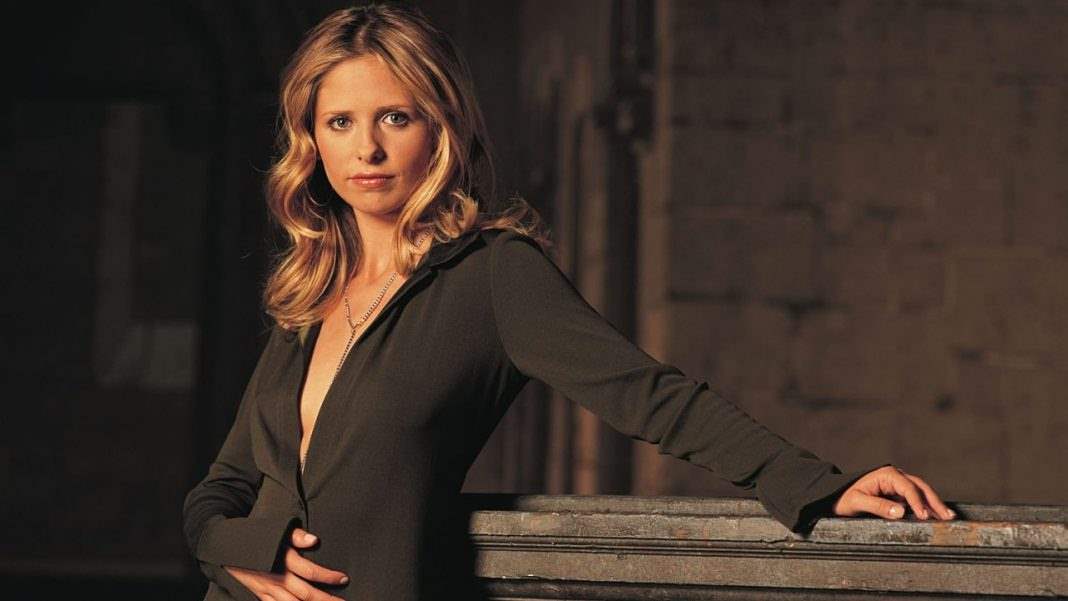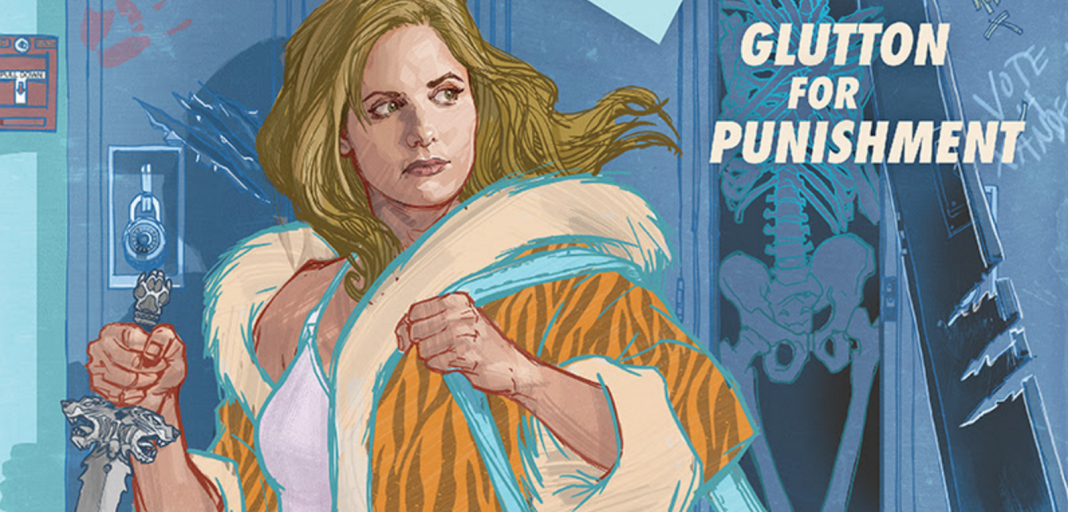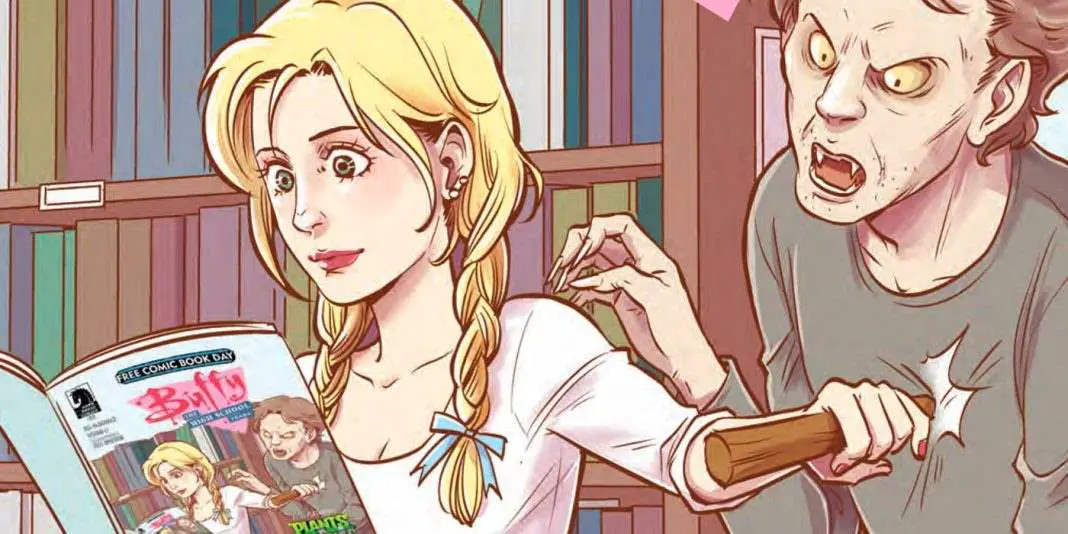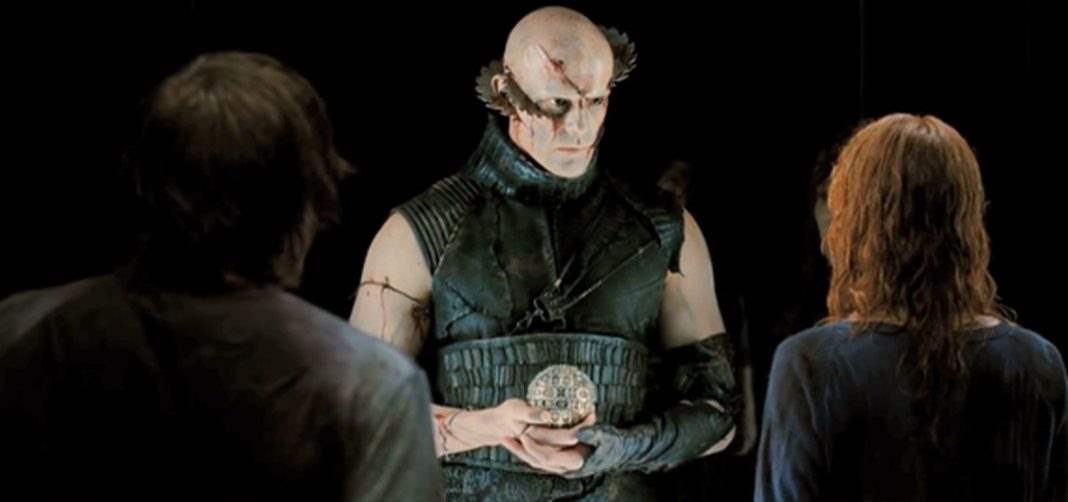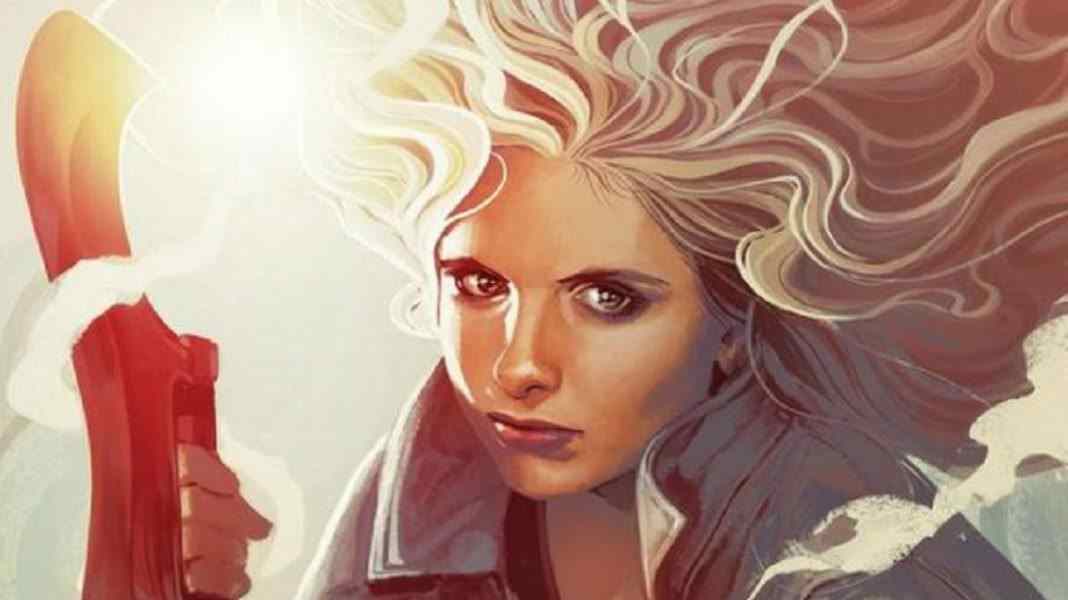I was eight years old when Buffy the Vampire Slayer premiered. It worked out in a funny way. By pure coincidence, my dad came home with the movie solely because he found the title hilarious. It became a childhood favorite. We’d watch it all the time together. When we started seeing ads for the show, he would be dismissive of them and I would be curious. I was still a kid, and thought that there was no such thing as too much of a good thing. I didn’t have any clue as to the movie’s critical reception. I had none of the reservations about the show that some people went into it with. I only knew that I loved vampires, loved monsters and wanted to see more of them.
I didn’t get to watch it right away, even though I was aware of it from the beginning. Growing up in rural Maine, TV stations were sometimes spotty. If I remember correctly, WB was kind of dueling with another channel. Sometimes it would be one, sometimes it would be the other. Not the ideal circumstances to try and get into a particular show.
But it didn’t take Buffy long to hit the collective pop culture consciousness. I discovered books, I discovered comics, and I started devouring them. Even if I couldn’t see the series, I wanted to devour that story in some form or another. I read novelizations of episodes—The Xander Years was my first collection, I believe—before I ever saw a single episode of the show. I think I read a few of the comics before I’d ever even seen an episode, too.
I began being able to finally watch the show in the third season. I was in fourth grade, though, and not able to keep up with it on a week-to-week basis. I would watch the series when I could and would pick up the books and the comics wherever I could find them. By this point, I was already hooked. I didn’t even have a single clue as to what it was actually about. I knew there was a cool girl who fought monsters and she had friends that were vampires, witches and werewolves. It was the coolest thing. It was everything I fantasized about.

In other series, very little would change to the core dynamic. I could go back to The X-Files now and then and would always know what was going on. Mulder was always the believer, Scully always the skeptic. I took two seasons off of Buffy and the entire world had changed. Luckily, this was the exact same time that the show got picked up for re-runs on FX, so the entire backlog became available at once. I spent that year doing practically nothing but watching Buffy.
It was around the eighth grade, when the show was airing its final season, that it first dawned on me that Buffy actually had something to say. Middle school can be a tough transition and I was finding myself with not necessarily fewer friends, but I was less connected from them. I remember catching the episode “Earshot” and being stunned by Buffy’s speech to Jonathan in the clock tower. For about a second, I felt stupid that I’d never picked up on some of the themes going on here.
Immediately after that, I felt more validated than I ever had about something that I loved. This show that had become an obsession of mine was not only smart, it was important. It had a reason for existing and a purpose that most of the other things I loved did not have. I felt like all my time invested in watching the show, reading the books and the comics, all of that had been rewarded. People could make fun of things I liked, but they couldn’t make fun of this because it was genuinely fantastic storytelling and I truly believed in it.
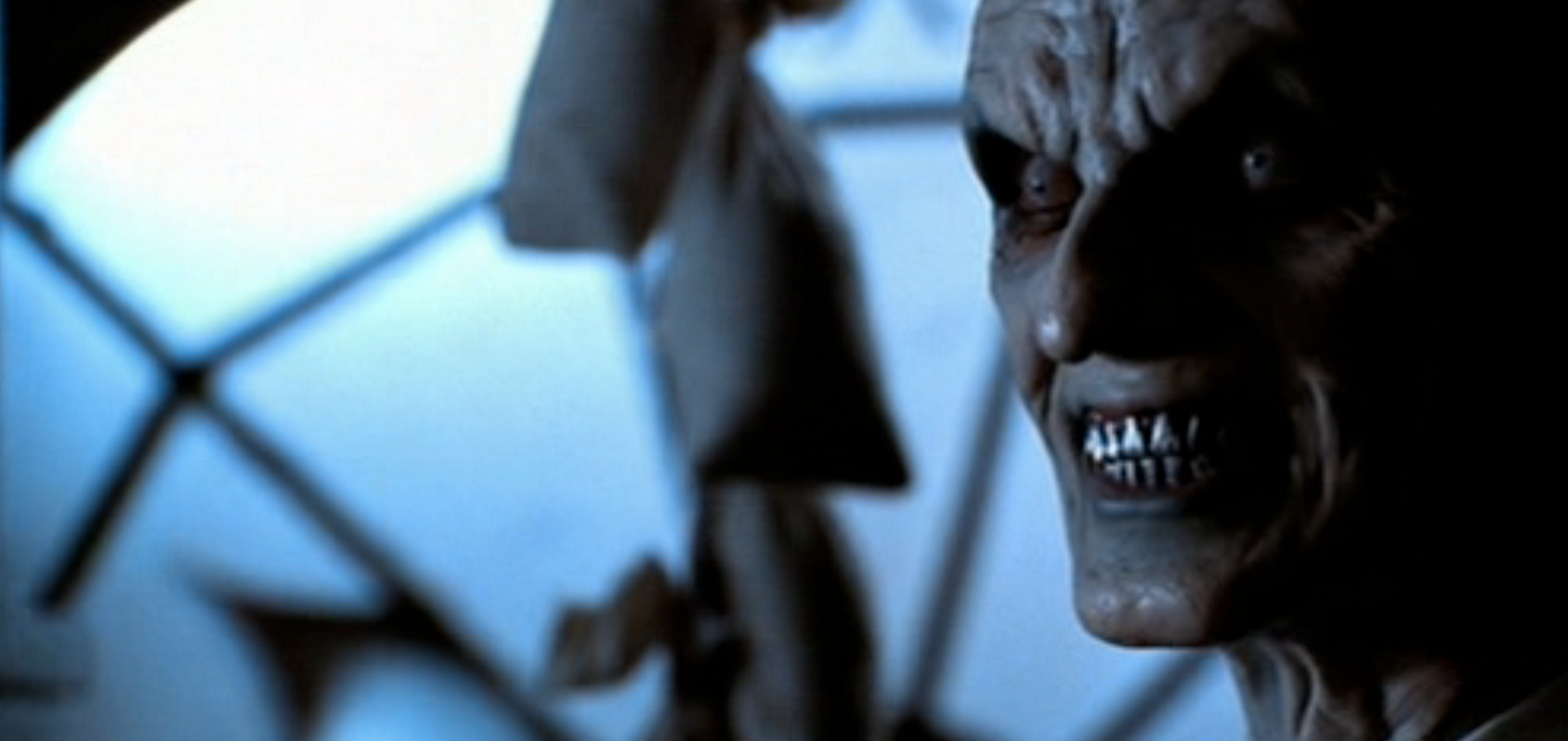 That didn’t stop people from making fun of it, of course. They did. Frequently. Throughout middle school and high school, I never had any other friends that actually liked the show. I felt alienated, I felt alone and I felt weird and it didn’t matter. Because I had Buffy to guide me through every single one of those feelings.
That didn’t stop people from making fun of it, of course. They did. Frequently. Throughout middle school and high school, I never had any other friends that actually liked the show. I felt alienated, I felt alone and I felt weird and it didn’t matter. Because I had Buffy to guide me through every single one of those feelings.
Every anxiety that I felt in high school was covered at some point, no matter how dark or uncomfortable those fears and pressures would get. Buffy was always there. She became a personal hero. In some ways, almost every character on that show did.
Buffy was a girl who struggled for a normal life. She spent a long time wishing she could be anything but the Slayer, but in the later seasons, realized how important that was to her and wore it as a badge of pride. To me, as an adolescent, Buffy’s relationship to being the Slayer was something I could identify with as incredibly close to my relationship with my own imagination. With creativity in general. I knew that the things I loved were weird. I knew that other kids were growing out of monsters and I wasn’t.
And I spent some time wishing that I would before realizing that embracing those things and writing about them felt like what I was supposed to do. It felt right. I’m not saying that Buffy shaped my decision to become a writer, but it was there. Whenever I would have any doubts, no matter what they were, Buffy was always there. It always guided me through them. And it still does to this day.
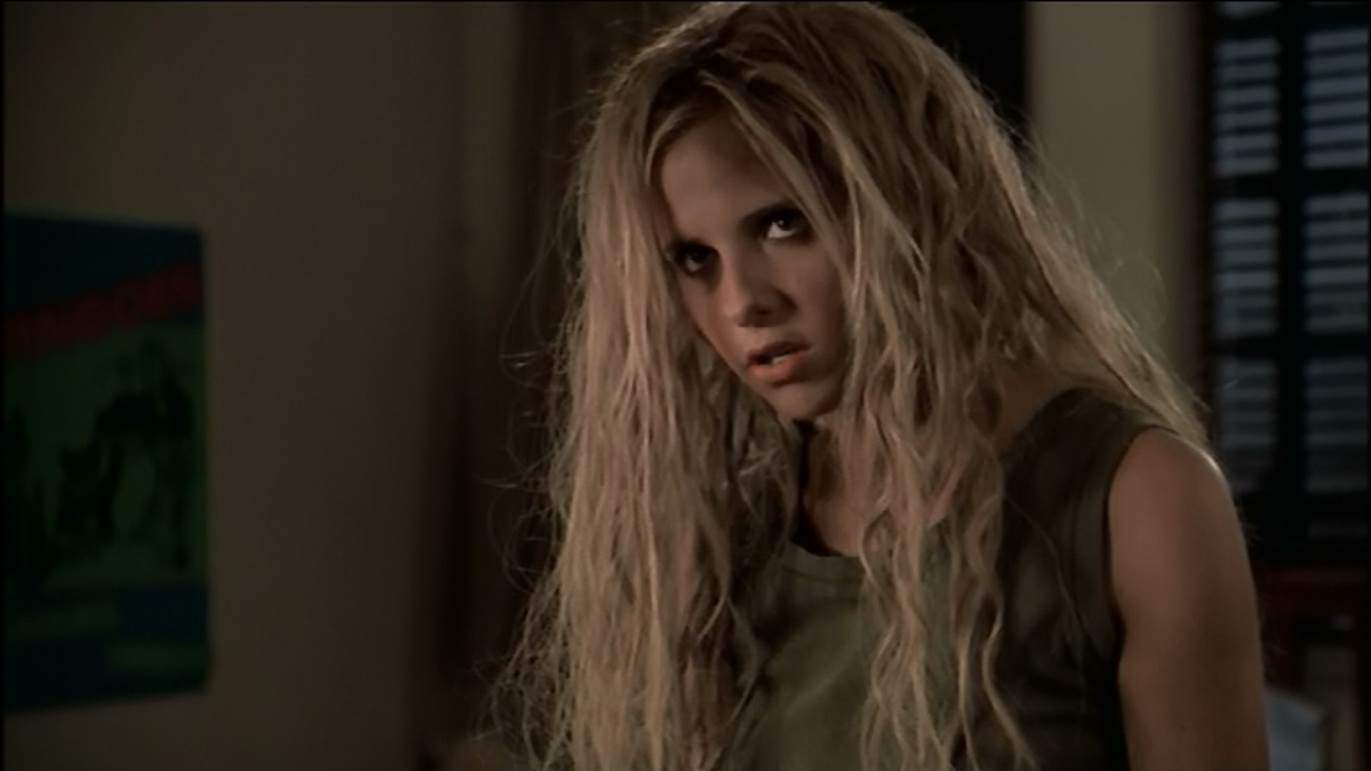 I learned so much about storytelling from this show, and not just from its brilliant penchant for literalizing metaphor. It embraced genre like I’d never seen before. In fact, it embraced every genre at once. This was truly ballsy writing. It did the impossible week after week, both figuratively and literally. When Whedon was criticized for writing nothing more substantial than witty dialogue, he’d come up with an episode like “Hush.” It would be funny one week, genuinely scary or heartbreaking the next. Sometimes it would be all of these things over the course of a single episode.
I learned so much about storytelling from this show, and not just from its brilliant penchant for literalizing metaphor. It embraced genre like I’d never seen before. In fact, it embraced every genre at once. This was truly ballsy writing. It did the impossible week after week, both figuratively and literally. When Whedon was criticized for writing nothing more substantial than witty dialogue, he’d come up with an episode like “Hush.” It would be funny one week, genuinely scary or heartbreaking the next. Sometimes it would be all of these things over the course of a single episode.
I haven’t truly admitted this to many people, but I chose where I went to college based on the fact that the school offered a course on Buffy. I took that course for a full semester my freshman year and it was naturally the best time I ever had in my academic career. Everything about it was validating. I had never had friends who loved the show in high school, but in college every single one of my friends loved it almost as much or just as much as I did.
We’d discuss “Once More With Feeling” and the brilliance of doing a musical that also acted as an honest depiction of depression. We once did an entire three-hour lecture devoted to exploring Faith as a character. We read entire books devoted to the episode “Restless.” I learned that I didn’t have to love every single episode. Through that class I first saw just how huge and expansive the academic community devoted to Buffy really is. Because of that, I’m still intimidated to write about the show even now, knowing that there will always be someone out there who knows so much more about it and can articulate it much, much better.
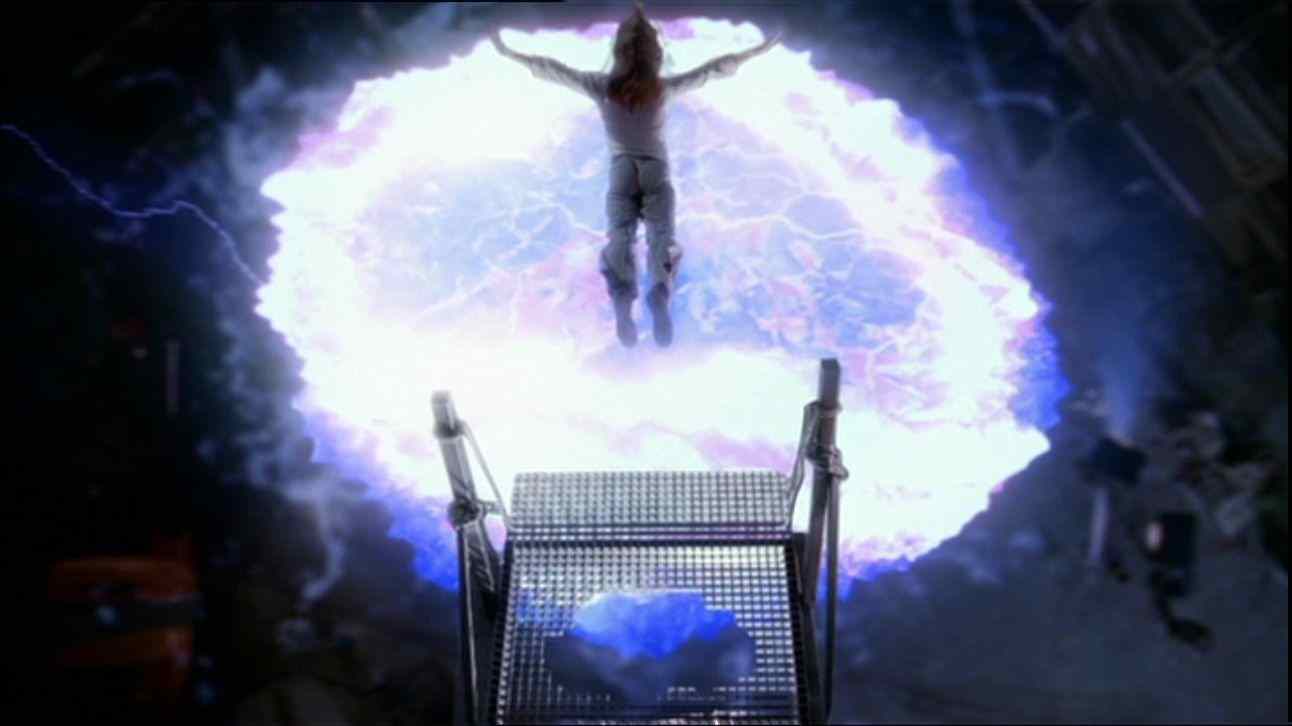 I was so much younger than the characters when I discovered the show, but nonetheless I feel like I discovered it at the perfect time. And I’m so glad I did. When I felt alone in high school, Buffy was there to help me deal with that. When I started growing apart from old friends in college, Buffy was there. Even at my lowest points, the show was there because it was never afraid to address any topic if it could help someone pick themselves up.
I was so much younger than the characters when I discovered the show, but nonetheless I feel like I discovered it at the perfect time. And I’m so glad I did. When I felt alone in high school, Buffy was there to help me deal with that. When I started growing apart from old friends in college, Buffy was there. Even at my lowest points, the show was there because it was never afraid to address any topic if it could help someone pick themselves up.
Even now, trying to explore adulthood in my twenties, Buffy is there. It’s there in the sense that I can always go back and re-watch it when I need to, and in the sense that the comics are literally about Buffy navigating her twenties right now. It’s still going on in some form or another. In some ways, it’s bigger now than it ever was when it was on the air. Just like the Slayer herself, Buffy refuses to die. I wouldn’t have it any other way.
Yes, you can see that the show is twenty years old when you watch it. Like much of the ‘90s, the fashions and tech didn’t stick around for long. So much of it is very, very dated. But on one level, it doesn’t even matter. Just because it shows its age doesn’t mean it will ever stop being timely.
I’d like to end this with some witty pun that I feel would make the character proud, or to recite the epitaph adorning her tombstone: “She saved the world a lot.” But the truth is, I can’t.
Because she still does. And she always will.
